Pound Enjoys Time Away From Spotlight

Another week passes and Greek negotiations slip past increasingly tenuous deadlines. European leaders continued to press for firm economic development plans while Greece held firm. Proposal rejections are a daily occurrence as each side continues to push hard without issuing iron clad ultimatums.
Greece knows that European leaders such as Jean Claude Junker wish to see the euro survive, potentially at the cost of economic (and potentially political) sanity. At the same time, Germany remains on the hook for the best part of €63.5bn out of a total of €324bn Greek debt. Were Greece to default, Germany would be one of the biggest losers.
While new deadlines approach this weekend, the euro and the EU have a history of doing just enough to carry things over. Long term problems are kicked into the long grass because many of these problems are intractable given the perilous state of Greek finances.
The upshot of the current situation is that the euro remains under pressure and is likely to do so for some time. Even if a deal is announced, markets have a history of picking through the holes within weeks.
The British pound by contrast has been keeping its nose clean. The British economy is no bed of roses, but the economic recovery remains largely on track. We can see the pound’s dominance over the euro over the last 12 months with 2015 being a messy range.
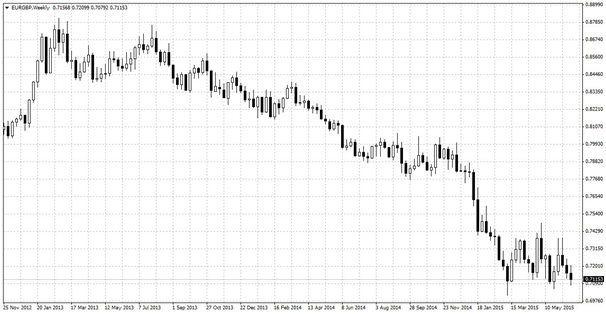
EUR/GBP Weekly
As with the US, UK interest rate expectations have shifted a little further into the future, but the direction of travel is still decidedly higher. The pound’s performance is even better when viewed against the currencies most exposed to the ongoing oil price and commodity slump.
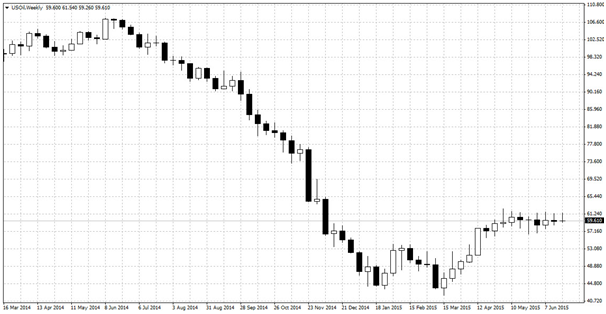
Oil Prices Weekly
After bouncing off a low of around $45, oil prices have struggled to make any progress past the $60 region and remain a long way from their 2014 peak.
Australia has had to cut rates this year to jump start the economy back into action as commodity prices come off the boil and China’s economy levels off.
The GBP/AUD has been on a steady climb over this time, with the pair now sitting close to its highest levels since 2009. The Ashes might just be a little more expensive for Australian tourists this summer.
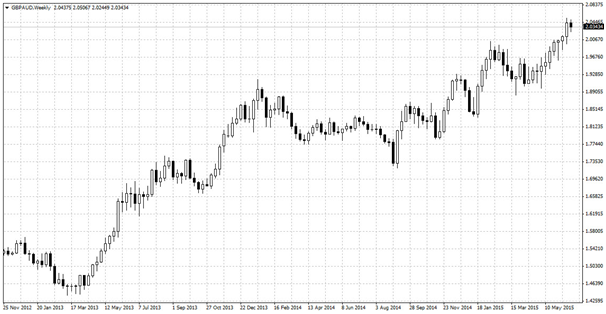
GBP/AUD Weekly
The Canadian dollar has seen similar declines this year, allowing the GBP/CAD to approach its highest levels since 2008. The Canadian economy has been hard hit by the lower oil prices as companies freeze spending on projects in the tar sands region.
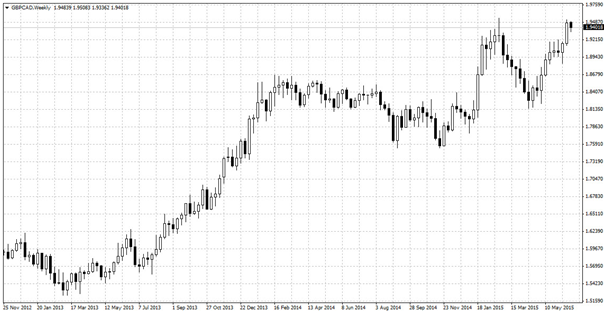
GBP/CAD Weekly
A Canadian rate cut does not appear to be on the cards, but every day that oil prices remain below $60 is another day that the economy suffers.
Money could still continue to flow into the British pound at the expense of the euro and the Canadian dollar appears an attractive pair to ride this trend with.
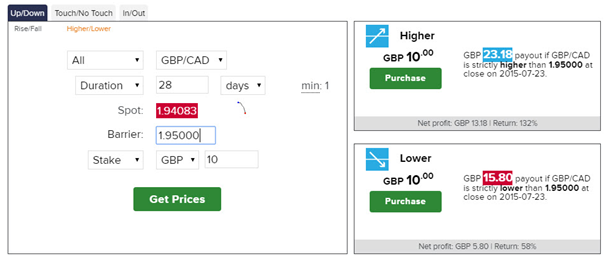
Disclaimer: This financial market report is intended for educational and information purposes only. It should not be construed as investment or financial advice, and you should not rely on any of its content to make or refrain from making any investment decisions. Binary.com accepts no liability whatsoever for any losses incurred by users in their trading. Fixed odds trading may incur losses as well as gains.
Comments (0)